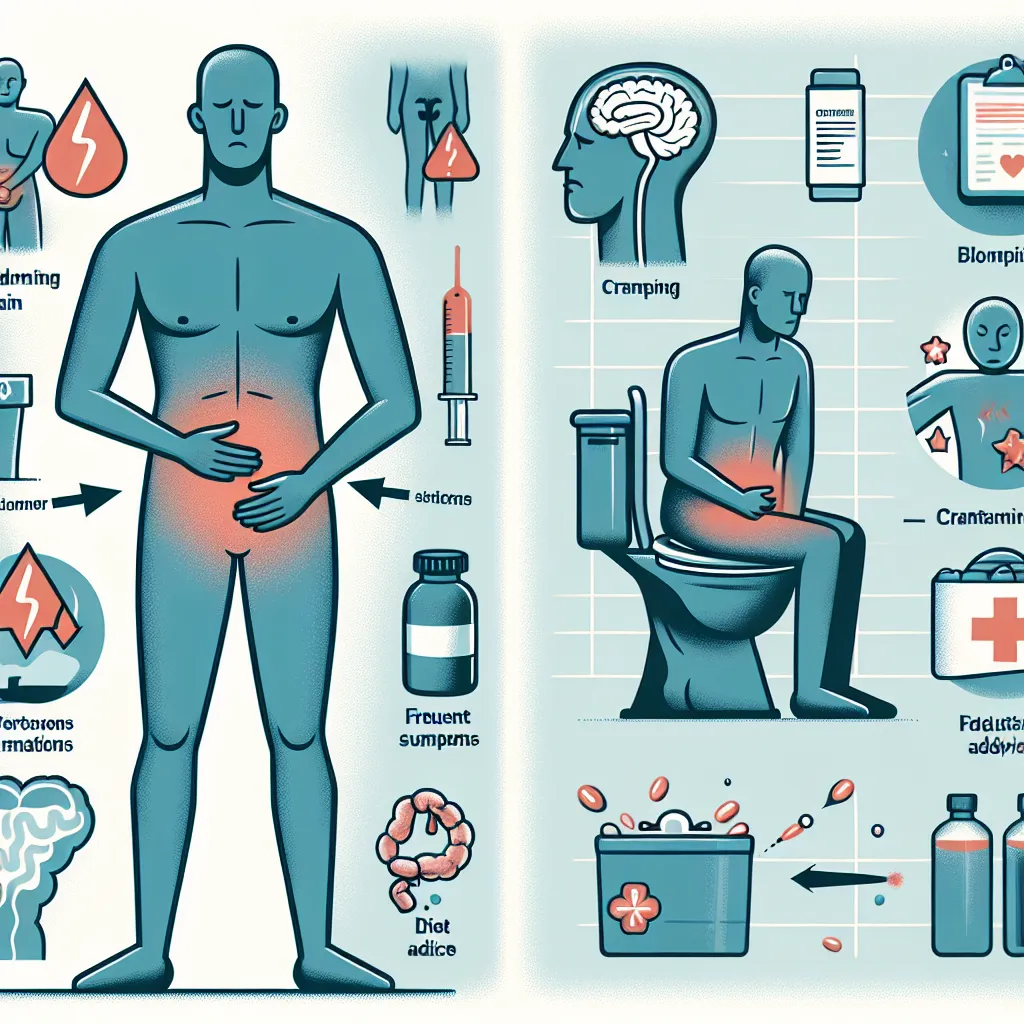Ed Colitis Symptoms and Treatment
Ed Colitis Symptoms and Treatment
Ed Colitis, also known as ulcerative colitis, is a chronic inflammatory bowel disease that affects the colon and rectum. It is characterized by recurrent inflammation and ulcers in the inner lining of the large intestine. This condition can cause a range of symptoms and requires proper diagnosis and treatment for effective management.
Symptoms of Ed Colitis
The symptoms of Ed Colitis can vary from mild to severe, and they may come and go in cycles of flare-ups and remission. Some common symptoms include:
- Abdominal pain and cramping
- Diarrhea, often with blood or pus
- Rectal bleeding
- Urgency to have bowel movements
- Constipation
- Weight loss
- Fatigue
- Fever
- Loss of appetite
- Anemia
If you experience persistent or severe symptoms, it is important to consult a healthcare professional for an accurate diagnosis.
Diagnosis of Ed Colitis
Diagnosing Ed Colitis usually involves a combination of medical history evaluation, physical examination, laboratory tests, and imaging procedures. The healthcare provider may perform the following:

- Medical history assessment: The doctor will ask about your symptoms, family history, and overall health.
- Physical examination: The doctor may examine your abdomen and rectum to check for any signs of inflammation or abnormalities.
- Blood tests: These tests can help identify markers of inflammation and assess your overall health status.
- Stool sample analysis: A sample of your stool may be analyzed to check for the presence of blood, infection, or other abnormalities.
- Colonoscopy: This procedure involves inserting a flexible tube with a camera into the rectum to examine the colon and collect tissue samples for further analysis (biopsy).
- Imaging tests: X-rays, CT scans, or MRIs may be done to visualize the intestine and identify any complications.
Based on the results of these tests, the healthcare provider can make an accurate diagnosis and determine the severity of the condition.
Treatment of Ed Colitis
While there is no known cure for Ed Colitis, various treatment options can help manage the symptoms and promote remission. The treatment plan may vary depending on the severity of the disease and individual patient factors. Some common treatment approaches include:
- Medications: Anti-inflammatory drugs, such as aminosalicylates, corticosteroids, and immunosuppressants, are often prescribed to reduce inflammation and control symptoms.
- Biologic therapies: These medications target specific components of the immune system to reduce inflammation.
- Antibiotics: In some cases, antibiotics may be prescribed to treat or prevent infection.
- Dietary changes: A high-fiber diet, along with avoiding trigger foods, may help manage symptoms and promote better bowel function.
- Supplements: Nutritional supplements, including vitamins and minerals, may be recommended to address any deficiencies.
- Stress management: Techniques such as meditation, yoga, and counseling can aid in stress reduction, which may help alleviate symptoms.
- Surgery: In severe cases or when other treatments fail, surgical removal of the colon (colectomy) may be necessary.
It is crucial to work closely with a healthcare professional to develop an individualized treatment plan based on your specific needs and medical history.
Lifestyle Modifications
Alongside medical treatments, certain lifestyle modifications can help individuals with Ed Colitis manage their condition more effectively. These include:
- Quitting smoking: Smoking can worsen the symptoms and increase the risk of complications.
- Regular exercise: Engaging in physical activity can help reduce inflammation, relieve stress, and improve overall well-being.
- Adequate rest: Getting enough sleep and managing stress levels are essential for maintaining a healthy immune system.
- Hydration: Drinking enough water helps prevent dehydration, especially during flare-ups when diarrhea is prevalent.
- Support groups: Joining support groups or seeking counseling can provide emotional support and valuable information about managing the condition.
Monitoring and Follow-up
After diagnosis, it is crucial to regularly monitor the condition and follow up with your healthcare provider. Monitoring typically involves routine check-ups, laboratory tests, and colonoscopies to assess the response to treatment, detect any complications, and make necessary adjustments to the management plan.
Conclusion
Ed Colitis is a chronic inflammatory bowel disease that requires proper diagnosis and treatment for effective management. The symptoms can significantly impact an individual’s quality of life, but with the right medical interventions, lifestyle modifications, and ongoing care, individuals with Ed Colitis can achieve symptom control and experience periods of remission. If you suspect you have Ed Colitis or experience persistent gastrointestinal symptoms, it is essential to consult a healthcare professional for a comprehensive evaluation and appropriate treatment.
